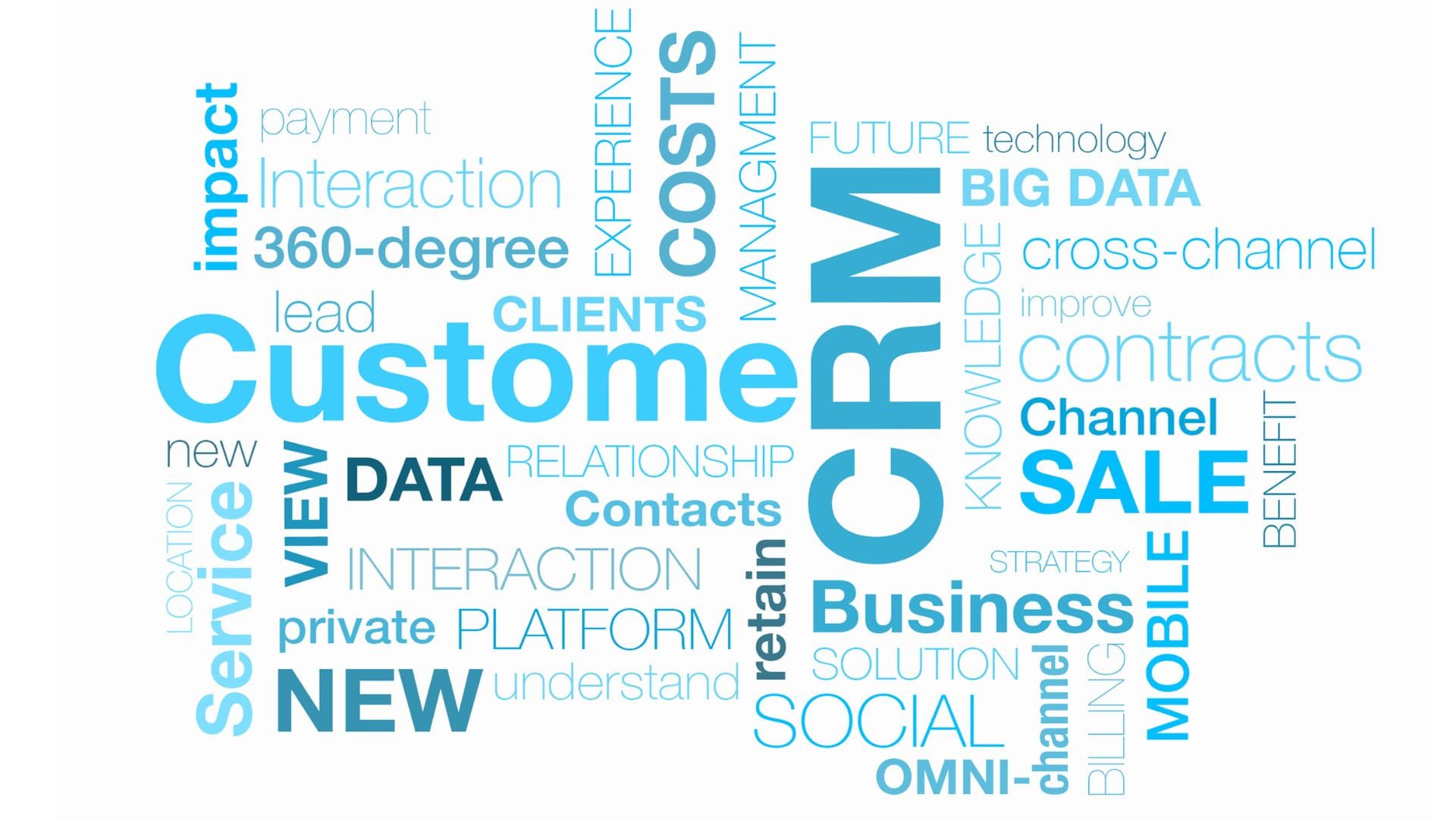CRM what is and why should you integrate it into your business? This article will provide all the information necessary to understand the importance of this tool and the benefits it can offer to companies.
CRM what is it
CRM is the acronym of "Customer Relationship Management", which translated into Italian indicates the management of customer relationships. It is a set of strategies, processes and technologies that companies use to manage and maintain relationships with potential and acquired customers.
A CRM system allows companies to obtain, manage and analyze information about customers, including their preferences, interactions with the company, purchases, service requests and more. This information can be used to personalize the customer experience, improve customer satisfaction, and increase sales.

A CRM system can include features such as contact management, sales, marketing campaigns, customer service, social media interactions, customer data, and data analytics. There is many CRM software available in the market, which can be customized to meet each company's specific needs.
What is CRM and what are its basic functions?
Each CRM has several basic functions, including contact management, management and optimization of all internal and external activities of the company, management of sales opportunities, management of marketing campaigns, reporting and data analysis.
In detail, the basic functions of a CRM are as follows:
- Contact Management: Allows you to acquire, organize, and manage your company's customer and contact information.
- Business Activity Management: Schedule and monitor internal and customer-related activities, such as phone calls and emails, meetings, and follow-up activities.
- Sales management: thanks to the CRM it is possible to monitor the sales life cycle, from the initial contact with the customer to the closing of the contract. This includes customer account management, sales opportunity management, sales forecast management, and customer relationship management.
- Marketing Management: Allows you to plan, execute and monitor your marketing activities, such as email marketing campaigns, social media marketing activities and other marketing activities.
- Customer Service Management: Facilitates the management of customer service inquiries, such as phone, email, and chat support inquiries.
- Reporting and Analysis: Generate reports and analyze customer data to evaluate company performance, identify areas for improvement and make decisions.
These are just some of the basic features of a CRM. Depending on the specific needs of the business, other advanced features may also be available, such as order management, invoice management and inventory management.
Customizing a CRM
In addition to giving a definition of CRM, what it is and what its basic functions are, it is also worth understanding how this tool can be customized.
CRM systems can be customized to meet the specific needs of each company.
Customizing a CRM depends on individual needs. Here are some common customizations that can be made:
- Customizing Fields: Every CRM contains a standard number of fields, but companies often need custom fields to record specific customer information. Customizing fields allows you to add new fields or modify existing ones to meet your business needs.
- Process customization: CRM can be customized to support specific business processes, such as sales procedures or customer service procedures. This allows you to manage customer-related activities more effectively and improve the productivity of the company.
- Customizing Forms: Forms in a CRM are often designed to fit standard company processes, but they can be customized to meet specific needs.
- View customization: Views in a CRM can be customized to provide an overview of the most relevant data. This helps reduce the time it takes to access the information you need.
- Report customization: Reports in a CRM can be customized to provide the information needed to evaluate the company's performance. This helps identify areas for improvement and make data-driven decisions.
The customization depends on the specific needs of the company and can vary greatly depending on the industry, size, and business model.
CRM what is an integrated system?
CRM systems should be able to integrate with other software and platforms, such as ecommerce and automation software. This allows companies to use customer data more effectively and gain a more complete view of their business.
CRM is an integrated system that aims to improve customer relationship management by centralizing customer information and automating marketing, sales, and customer service activities.
It allows you to create a single-entry point for customer information and connect all customer-related activities in one system. This eliminates the need for multiple separate systems, which can lead to inefficiencies and duplication of information.

CRM also makes it possible to improve the efficiency of marketing, sales, and customer service activities by automating processes and reducing response times to customers. For example, automating marketing emails can help you send personalized emails more efficiently and in a timely manner, while automating sales lead management can help ensure leads aren't missed.
In summary, an integrated CRM system allows you to improve the efficiency of customer-related activities, reduce the duplication of customer information and improve collaboration between company departments. This can lead to better customer relationship management, optimized business performance, and ultimately increased revenue.
CRM: data analysis tool
A CRM can also be a data analysis tool, capable of providing a series of useful information to improve customer relations, marketing activities and sales.
The CRM collects and records a wide range of customer information, such as contact details, past interactions with the company, transactions made, complaints, requests for assistance. These data, if analyzed, can provide a series of useful information, such as:
- Customer segmentation: CRM data can be used to divide customers into homogeneous segments based on different characteristics, such as customer value, geographical location, purchasing behavior, and so on.
- Trend Identification: You can identify the most successful sales trends, customer preferences and marketing activities.
- Customer satisfaction evaluation: CRM data can be used to evaluate customer satisfaction and identify any problems or areas where the company needs improvement.
- Performance Evaluation: Analyzing CRM data can help evaluate company and employee performance, providing insight into response times to customer inquiries, sales activity, and so on.
In addition, the CRM can be integrated with other data analysis tools, such as business intelligence and data mining software, to obtain even more detailed information about customers and company activities.
In conclusion, CRM can be a very powerful data analysis tool, capable of providing useful information to improve customer relationships, marketing, and sales activities and, ultimately, to increase the success of the company.
How do you implement a CRM?
Implementing a CRM can be a complex process, but with good planning it can be done successfully.

Here are the general steps for implementing a CRM:
- Identify the strategy and goals: Before starting the implementation, it is important to identify the strategy and goals that you want to achieve using CRM.
- Select the right CRM: It is important to choose a CRM that aligns with the goals of the implementation and with the needs of the company. It's also important to consider ease of use, scalability, and the ability to integrate with other systems used by the company.
- Determine what data to transfer: A key step is to decide in advance what data you want to import into the new system.
- Engage Stakeholders: It is important to engage stakeholders from the very beginning of implementing CRM, such as the IT team, sales team, marketing team, and so on. This can help ensure greater adoption of the system and greater collaboration between departments in the company.
- Customize the CRM: It is important to customize the CRM according to the needs of the company. This may include integrating with other systems used by the company, creating custom fields, and customizing marketing and sales activities.
- Staff training: it is important to train staff to ensure greater effectiveness.
- Testing and validation: It is important to test the CRM before its full implementation to verify that it works properly and meets the company's objectives. Furthermore, it is important to verify the validity of the imported data and the quality of the recorded data.
- Monitoring: It is important to constantly monitor the CRM and the quality of the logged data to ensure that the system is functioning properly.
With proper implementation, CRM can become a very effective tool for improving customer relationship management and increasing business success.
Support and assistance of a CRM
The support and assistance offered varies depending on the CRM selected. However, there are some services commonly offered by providers:
- Technical Support: Most CRM vendors offer technical support via phone, chat, or email to help users resolve technical issues, such as software setup or bug fixes.
- Training: Online or classroom training courses are often offered to help users familiarize themselves with the software and learn best practices for using the system.
- Online Documentation: Extensive documentation can be found online including guides, video tutorials, and user manuals for troubleshooting yourself.
- Online Community: Many CRM vendors offer an online community where users can ask questions, exchange ideas, and share experiences with other users.
- Consulting Services: Some CRM vendors offer customized consulting services to help companies choose and implement software effectively.
- Updates and maintenance: Updates are often made available and periodic maintenance is offered to ensure that the software works properly and is secure.
The benefits of CRM

A CRM system can offer many benefits to a business. Here are some examples:
- Improved customer relationship management: A CRM system helps centralize customer information and improve interaction management, such as through improved customer service, marketing, and sales management.
- Increased Productivity: A CRM system can automate many manual tasks, saving time and resources. For example, you can automate sending personalized emails, scheduling tasks, and managing leads.
- Increased operational efficiency: Integration with other business systems, such as accounting or human resource management systems, allows you to improve information sharing and collaboration between departments.
- Improved data analytics: A CRM can provide in-depth insights into customer data and company performance, allowing you to gain insights for strategic decision making.
- Greater customer loyalty: offering a personalized service allows you to better meet customer needs, improve their experience and therefore their loyalty.
- Increased sales: A CRM system allows you to manage leads more efficiently and direct marketing and sales activities towards the most promising opportunities, thus improving the sales conversion rate.
Choosing to use a CRM system can prove successful for your business, especially considering the many advantages it offers.
What are the main principles of CRM?
There is a lot of CRM software available in the market, with different features and levels of complexity. Here are some of the main CRMs used by companies:
- Salesforce: This is one of the most popular and widespread CRMs. It offers a wide range of features for managing sales, marketing, and customer service. It is known for its flexibility and its ability to adapt to the needs of different businesses.
- Microsoft Dynamics 365: This is another very popular option. It offers a complete suite of sales, marketing, and customer service management applications integrated with Microsoft's productivity platform.
- HubSpot CRM: It's an easy-to-use solution. It offers sales, marketing, and customer service management features.
Now that all the useful information about CRM has been provided, what it is and what it is for, it's time to test it! Ekeria, Digital Agency, is a partner of HubSpot. Contact us to book a free demo and discover all the features and benefits that a CRM can bring to your company.
.webp)


